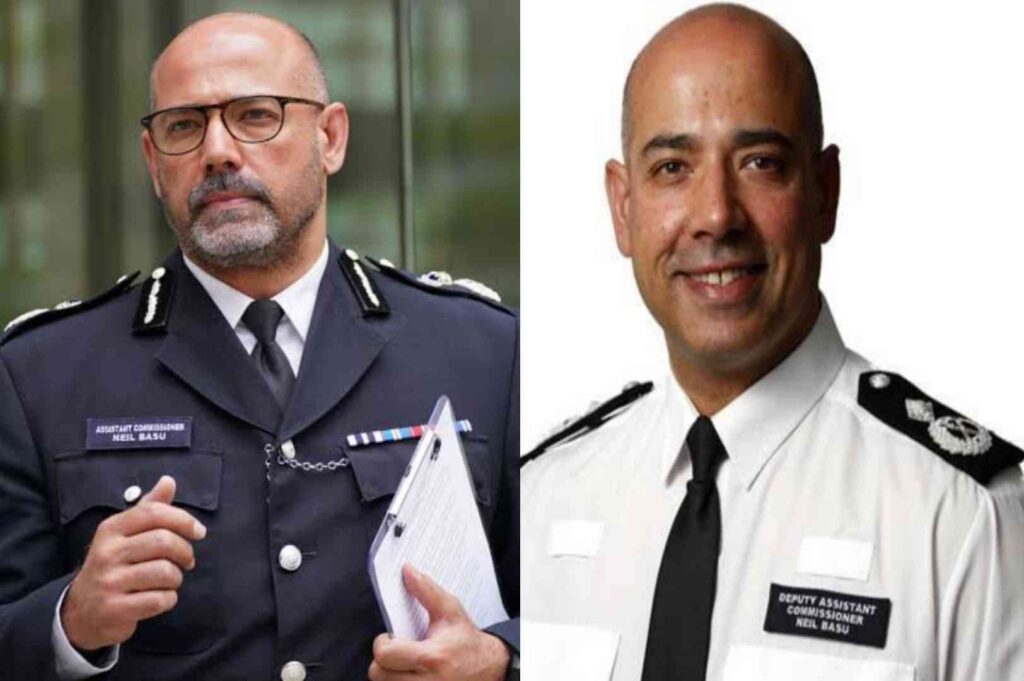Neil Basu is one of the most recognized names in British policing. A former Assistant Commissioner of the Metropolitan Police in the UK, he gained public attention for his leadership in counter-terrorism operations. Born in the UK to a British mother and Indian father, Neil Basu broke barriers as one of the highest-ranking officers of Asian descent in British law enforcement. His biography is not just a timeline of events—it’s a story that represents diversity, resilience, and leadership in challenging times. Biographies like Neil Basu’s are more than just records. They help us understand the human behind the headlines. They give us insight into what shapes a person’s decisions, actions, and beliefs. Exploring Neil Basu’s biography shows how one life can impact an entire profession and influence society. This article explores the purpose of biographies through the lens of Neil Basu’s life and legacy.
Why Biographies Matter
Biographies serve as windows into the lives of others. They tell stories of people who have made a difference, overcome adversity, or simply lived unique lives worth remembering. In Neil Basu’s case, his biography highlights his achievements in law enforcement, his multicultural upbringing, and the challenges he faced while serving during times of crisis. Biographies allow us to learn from history through individual experiences. They help us see the past not as a list of dates and events, but as lived realities. For readers, biographies create connections. They teach empathy, perseverance, and understanding. Neil Basu’s biography sheds light on policing in modern Britain, the fight against terrorism, and the push for more representation in high-ranking roles. When we read about his experiences, we understand more about the world we live in. That is why biographies matter—they humanize, educate, and inspire through storytelling.
The Human Side of Public Figures
One of the most important purposes of a biography is to reveal the human side of public figures. Neil Basu was often in the news for his high-profile work in counter-terrorism, but his biography allows readers to go beyond the headlines. We learn about his upbringing, his mixed cultural identity, and the values that shaped his work. Biographies remind us that public figures are people, too. They have fears, families, hopes, and dreams. By reading about Neil Basu’s life, we gain a better understanding of what it takes to handle the pressures of public service. It makes his work more relatable and his achievements even more meaningful. Whether it’s dealing with major terror threats or addressing diversity in policing, his biography offers insight into the mind of someone balancing personal identity and public responsibility. This personal perspective is what makes biographies powerful.
Education and Background—A Foundation
A person’s early life and education play a key role in shaping who they become. In Neil Basu’s biography, we learn how his mixed-race background influenced his worldview and career path. He studied at Nottingham High School and went on to earn a degree in economics from the University of Nottingham. These early experiences taught him discipline, resilience, and the value of hard work. Biographies show how education is not just about academics—it’s about growth. For Neil Basu, his educational background helped him understand different perspectives, manage teams, and think critically in high-pressure situations. His journey shows that no matter your background, determination and education can take you far. When we read biographies, we learn how foundations are built and how early experiences lead to future success. That’s why telling this part of someone’s life is so important in a biography.
Career Milestones in Neil Basu’s Life
Neil Basu’s biography is rich with professional milestones that reflect both personal commitment and public service. He joined the Metropolitan Police in 1992 and steadily climbed the ranks over the years. One of his most significant roles was as the head of Counter Terrorism Policing, where he handled some of the UK’s most critical national security challenges. In 2018, he became Assistant Commissioner, one of the highest roles in the Met. These career achievements are not just impressive—they tell a story of dedication, leadership, and trust. When biographies highlight such milestones, they do more than list promotions. They show how individuals navigate systems, face pressure, and maintain integrity. Neil Basu’s biography provides an inside look into law enforcement and what it means to lead during times of crisis. Career milestones like these make biographies inspiring for anyone aiming to create meaningful impact in their field.
Personal Growth Through Life Stories
A well-written biography shows how a person changes over time. It maps out their journey—not just their successes but also their personal growth. Neil Basu’s story includes challenges he faced as a minority in the police force and how he worked to increase diversity and inclusion within the system. His biography reflects a growing awareness of social issues, human rights, and institutional change. Personal growth is a major theme in all meaningful biographies. We see how people evolve with experience, learn from their mistakes, and become wiser over time. For Neil Basu, his growth shows in his leadership style, his public statements, and his push for modern policing strategies. Reading about someone’s personal growth reminds us that change is possible. It encourages us to keep improving ourselves, even when facing obstacles. That is a vital purpose of any good biography.
Lessons from Challenges and Controversies
Every life story has its share of difficult moments, and Neil Basu’s biography is no exception. From facing criticism in the media to handling highly sensitive operations, he has been through situations that required careful decision-making and moral clarity. Biographies are valuable because they don’t shy away from tough moments. Instead, they explore them in depth. In Basu’s case, challenges such as racial bias within institutions and debates over civil liberties during anti-terror operations offer important lessons. These events force us to think critically about leadership, responsibility, and ethics. When we read how Neil Basu navigated such challenges, we learn not just about him—but about the systems he worked within. Biographies provide lessons in resilience, honesty, and the ability to stand by one’s values. They show us that setbacks are part of every journey and that how we respond to them defines who we are.
Inspiring Future Generations
One of the most powerful purposes of biographies is to inspire. Neil Basu’s story can motivate young people—especially those from underrepresented backgrounds—to pursue careers in law, government, or public service. His biography is a reminder that barriers can be broken, and leadership can come from anywhere. Stories like his plant seeds of ambition and hope. They show that hard work and integrity can lead to positions of influence. Biographies are not just for history books; they are blueprints for future generations. When young readers learn about Neil Basu, they see someone who stayed true to his values while leading during difficult times. His story is proof that diversity matters and that progress is possible. This inspiration is one of the biggest reasons why biographies are written—and why they continue to be relevant across generations.
Building Historical Records
Biographies play an important role in preserving history. Neil Basu’s biography contributes to the historical record of modern policing and multicultural leadership in the UK. As time passes, personal stories like his become valuable sources of information for future researchers, students, and citizens. Biographies add depth to the history books by focusing on the individual voices behind national events. They capture the emotions, thoughts, and decisions that shape history in ways statistics cannot. For someone like Neil Basu, who was involved in major national security efforts, having a detailed and honest biography ensures that his contributions are remembered and understood. Writing down someone’s life helps create a clearer picture of the past. Without biographies, we risk forgetting the people who made a difference. They are essential tools for learning from the past and shaping a better future.
Conclusion—Neil Basu and the Power of Biography
Neil Basu’s life story is more than a list of jobs and achievements. It is a reflection of modern society’s challenges and progress. Through his biography, readers learn about courage, leadership, and the pursuit of justice. They see the importance of diversity in leadership and the strength it takes to stand firm in the face of adversity. This is the true purpose of a biography—to tell a story that informs, inspires, and educates. Whether you are interested in policing, social change, or personal growth, Neil Basu’s biography offers something valuable. It brings a human touch to public service and makes big issues easier to understand. In reading biographies, we connect with others, see the world from different angles, and realize that every life has meaning. Neil Basu’s biography is a shining example of how stories can change minds and shape futures.



